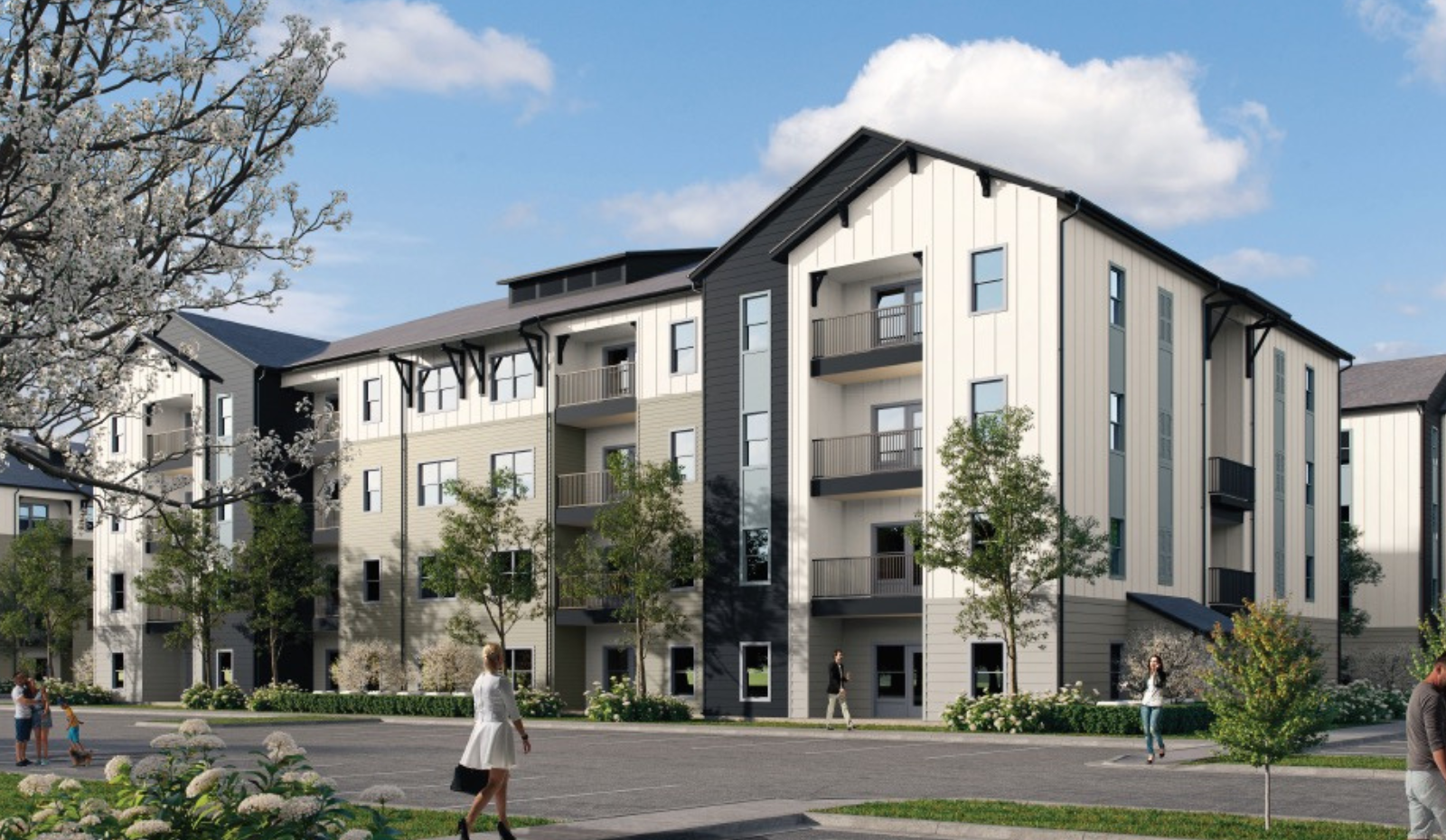April 22, 2024
CoStar News interviews American South Fund Management Managing Director Deborah La Franchi on the challenges of building affordable housing nationwide.
CoStar News, By Jon Leckie, Published April 22, 2024

The latest project financed by the American South Real Estate Fund in Beaufort, South Carolina, will include 280 units reserved for households earning less than 115% of the area’s median income. (American South Fund Management)
A California-based fund has raised money for its latest workforce housing project in Beaufort, South Carolina, expanding its affordable apartment portfolio largely without government subsidies as half the county’s renters find themselves weighed down by the cost of market-rate apartments.
The joint venture between Portage Properties, Piedmont Private Equity and Mid- Atlantic Capital has raised $13.5 million in preferred equity through American South Fund Management, itself a joint venture between SDS Capital Group and Vintage Realty Company, for the construction of an affordable, workforce housing development at 139 Robert Smalls Parkway in Beaufort.
When completed, The Preserve at Hanover is expected to consist of 280 units of one-, two-, and three-bedroom apartments across eight garden-style residential buildings on the 20-acre site. Apartments will feature smart-home technology and in-unit washers and dryers. Residents will also have access to an on-site gym, swimming pool, and pickleball courts. The below-market-rate units will be aimed at Beaufort’s low- to moderate-income households earning no more than 115% of the area’s median income.
The development marks American South Fund Management’s third investment in projects led by Piedmont and Portage. In total, the partnership has developed 760 of the nearly 5,500 workforce and affordable housing units financed across the South through American South Real Estate Funds I and II, an aggregate pool of $234 million that provides risk-adjusted, market rate returns comparable to other housing funds while investing in affordable projects largely without government subsidies or tax credits.
“We need to engage the private sector more in the battle against poverty. Government resources are not enough,” Deborah La Franchi, managing partner of American South Fund Management and SDS Capital Group’s managing partner, told CoStar News. “The private sector is a tremendous source of capital if you can make the numbers work and find those investors.”
It’s not that La Franchi has an aversion to using government subsidies to develop affordable housing, saying that a program like the Low-Income Housing Tax Credit has been a “powerhouse for generating affordable housing.” The challenge, she says, is that with limited government funds and cumbersome compliance regimes, the United States is not building enough affordable housing to meet the demand from low- to moderate-income renters.
“We just can’t produce enough [affordable housing] if we’re relying on these tax credits,” she said, adding that “the cost of the projects gets quite expensive” as developers chase subsidies from an alphabet soup of government agencies to fill funding gaps. But that chase isn’t free. Each new subsidy takes time to complete and administer, delaying development, extending project timelines, and bloating costs.
Rising Costs
In La Franchi’s native California, where she launched SDS Capital Group in 2001 to manage several funds including American South Real Estate, expenses have ballooned for housing projects aimed at the state’s homeless population. With costs ranging between $600,000 and $800,000 a unit, construction of affordable housing at the scale needed to address the crisis is all but impossible. With a total project budget estimated at $75 million, the per door cost at The Preserve at Hanover comes in at just under $268,000, less than half of many subsidy-supported affordable projects in California.
La Franchi said that in addition to avoiding the delays and administrative costs, savings at projects American South Fund Management invests in comes from standard market-induced discipline that understands the supply and demand fundamentals of the product relative to project’s expected rate of return.
The fund looks to work with partners who know what projects and in which communities they can invest in to develop or maintain an affordable housing property. “We know that there’s such a strong demand for affordable housing,” she said. And “it’s a good business model. The sponsors we fund know the project is going to be 99% leased up all the time because there’s simply not enough affordable units in the community, and they’re very good at what they do.”
Like many communities American South Fund Management invests in, half of Beaufort’s tenants are rent burdened, or spending more than 30% of their incomes on housing, according to a study conducted by the county. And nearly a fifth are severally rent burdened, with more than half their incomes devoted to housing costs.
“The demand for affordable housing is through the roof in this community. If we build it, they will come. I mean, it’s that simple,” La Franchi said.
If the fund’s investors are any indication, its approach to affordable housing development is catching on. American South Fund Management recently obtained $50 million from GCM Grosvenor consisting of capital from five public pension funds, an investor type La Franchi said has typically avoided affordable housing in the past.
“We do need to see more institutional capital coming into this space. Investors should understand that this is a good investment,” La Franchi said. “You shouldn’t shy away from these investments simply because we’re trying to make communities stronger by providing low-income families with quality housing. As an investor, don’t let the investment thesis scare you away. Look deeper into the investment strategy, because maybe it makes a lot of sense for your portfolio, and it’s just a good business decision to make.”
